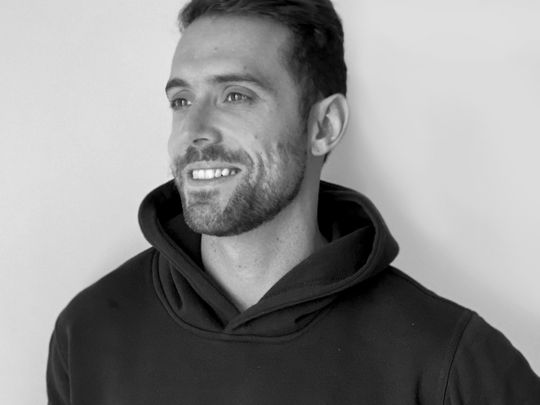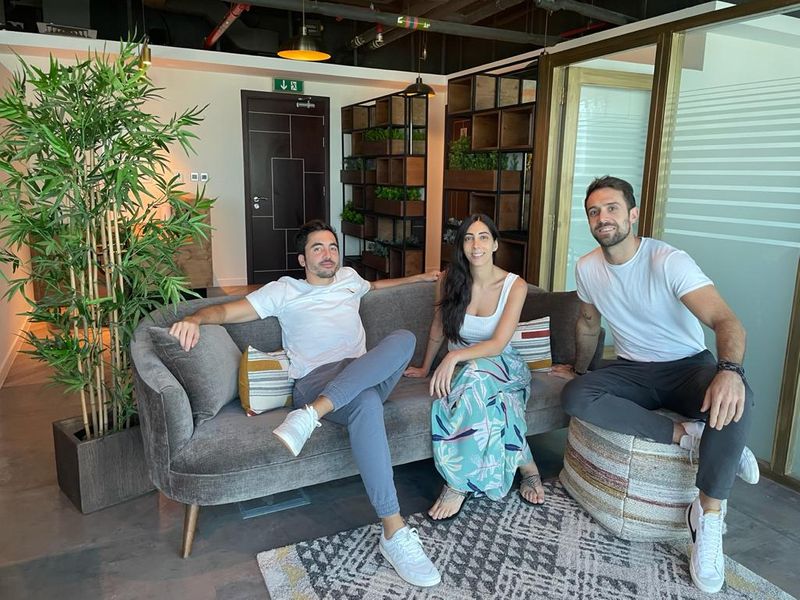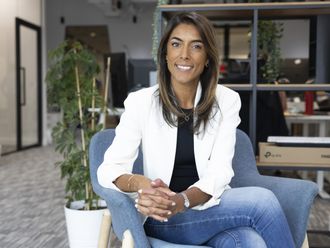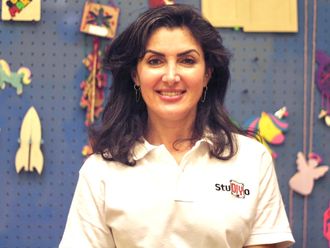
From working a full-time corporate job in a management consultancy firm to establishing a fitness e-commerce business in Dubai, UAE-based Spanish expat Alberto Pardo Aguilar reveals how his passion for fitness and wellness pushed him to start a fitness e-commerce business ‘Fitlov’ in the UAE. Here’s how..
"I had no background in the fitness sector, but my career in corporate consulting helped me specialise in the technology industry. Then during my MBA, I was further inspired by my professors to explore tech entrepreneurship,” Aguilar explained. “That's when I saw the opportunity to create ‘Fitlov’."
‘Fitlov’ is an on-demand platform offering fitness and wellness solutions with personal trainers, certified nutritionists, and wellness practitioners all in one space ready to cater to clients at their convenience.

Using your existing skill set to your entrepreneurial advantage
"Management consulting made me learn the importance of both analytical skills and effective communication skills. I believe these skills have been the most useful in creating a business from scratch and growing it up to our current status: 15 employees and a growing and promising revenue trend."
Aguilar also revealed how intelligent money management and expenses control skills helped them set up and run the business with self-funding for the initial two years.
"A vital lesson I learnt from my father is to control how much money you spend, as an individual or as a company, and if something is not absolutely needed, then most likely is not required.
“Cutting costs and saving on unnecessary spending is critical for a start-up to succeed in its first phases, as every dime matters when starting a new business."
Personal money motto: Invest in a sound business plan that is forecasted to churn a profit
It wouldn’t then be surprising to know the fundamental money principle Aguilar followed that led him to start a fitness e-commerce business in the UAE: “Invest in initiatives that have a clear, distinct and positive return on investment (profitability).”
Aguilar, who is the business’ co-founder alongside two others, added that one needs to be really good at assessing the monetary impact of each business initiative and decision. “And then, if something is not generating a clear positive outcome, cut it quickly,” he added.

Coming up with a new business idea: ‘Fitlov’ banked on the pre-existing fitness and wellness trend
Aguilar believed that starting a e-fitness platform made good business sense as fitness and wellness have become an essential part of people's lives now than ever, especially after the COVID-19 pandemic.
"The busy modern lifestyle calls for more attention to our wellbeing and health than ever before. In this context, we felt that the traditional fitness (gyms, boutique studios, etc.) industry was lagging and not suitable for everyone."
"We found many people did not have the time to commute to the gym or feel intimidated by traditional fitness offerings. In addition, we live in the times of the on-demand economy, where people value convenience more than ever before."
"So back in 2018, we saw a gap in the market and found an opportunity to create the most convenient app for on-demand fitness and wellness so that everyone could easily find a suitable solution to get in shape with personalised workouts and the motivation and accountability that personal trainers provide."

What were the key costs when launching your e-fitness platform?
Fitlov started as a bootstrapped, self-funded start-up, with the founders' initial capital investment of $100,000 (Dh367,300). He said that the business's top expenses were company set-up and license, office rent, team salaries, payment gateway fees, and marketing and advertising expenses.
Other minor expenses include cloud and hosting, software tools to optimise the app, advertising campaigns, utilities and copyright.
"Initially, as a tech start-up, our highest cost was developing the technology that cost us $30,000 (Dh110,190) and then setting up the company and license for $6,000 to $7,000 (Dh22,038 to Dh25,711).
“We managed and controlled our expenses by minimising the license cost and office lease by being accepted as one of the Dubai government-backed incubators for tech start-ups."

Here are 5 business lessons Aguilar shares with those looking to start a venture and become their own boss:
Business Lesson #1: Have a business model that saves on cost of hiring more experienced employees
"We hired promising talent straight from university and focused on developing our people (instead of hiring more experienced talent in each position). We used remote-working freelancers to lead non-critical functions, such as content creation, social media, search engine optimisation, etc.,” said Aguilar.
“Moreover, we focused on an asset-light business model: our company doesn't need to own gyms or hire personal trainers to provide the service (Personal trainers were hired as contractors).”
This way, they could run the company for two years without any external funding being innovative on where they had spent the money and achieving quick market traction. The on-demand economy and lack of a convenient fitness and wellness app offered an excellent business opportunity to them.
Business Lesson #2: Make the core product or service perfect before adding new options
Aguilar said the biggest challenge any entrepreneur faces is focusing and prioritising their time. "It is easy to get distracted with new opportunities and business ideas, but the priority should be to make the core product or service work to perfection before one can dream of adding new options."
"The only way to make that happen is to get hands-on experience and understand the nitty-gritty of your product and all your business processes. It feels like you have to succeed in all different areas in parallel and simultaneously."

What were your top challenges when starting a new business venture?
"My top challenges were recruiting and developing talent, acquiring customers in a highly competitive environment, and fundraising at the right time and from the right investors. We raised $500,000 (Dh1.8 million) a couple of months ago from a single investor, a renowned tech entrepreneur in UAE."
For the first two years, the company ran with the three founders’ investments, when they were also working full-time for a corporate, balancing both roles. It had helped them reduce the financial pressure as a start-up while they gained time to experiment and see the product-market fit and made the necessary changes when it was needed.
Business Lesson #3: As a business’ boss, you need to know and oversee all the financial numbers.
Aguilar said a successful company needs to be data-driven and understand all its business details.
"The business’ metrics are fundamental to take the right decisions. A discussion without numbers or data is only a philosophical discussion, and that is why numbers matter and without numbers, no important decision should be taken."
"Just remember that numbers matter. Make the first pilot work financially, show the favourable unit economics of what you are doing, and then scale it up with a strong foundation."

Business Lesson #4: Set aside enough money as a financial buffer to explore an entrepreneurial career
"Entrepreneurship is for the brave and ambitious ones. It is a tough and risky road; it is not suitable for everyone."
"My strategy during my corporate job years was to save as much money as possible, giving me a buffer of financial freedom to consider more adventurous career steps in the future.
“Once I had built that buffer, it was easier for me to take action and invest in my own company, taking a leap of faith to quit my corporate job and fulfil my dream of starting ‘Fitlov’."
Aguilar revealed that you typically have a much lower fixed salary as an entrepreneur than in a corporate job because you are chasing a much bigger reward – “the value of what you create is much more than any corporate salary.”
"Lowering your costs is an easier way to achieve financial freedom. It is not about how much money you have but how much you need to survive. This freedom comes from having a secure income that covers your expenses."
Business Lesson #5: Always test the waters before you make any significant investment
Aguilar added that whether you are selling a product or service, narrow it down and focus on its core, making it perfect before moving to any other area.
"Embrace technology, no matter what industry you aim to operate if you want to be ahead of the competition.
“Lastly, follow the demand of your customers. Listen carefully to your clients' needs and expand your services and offers accordingly; this way, you will create loyal supporters."










